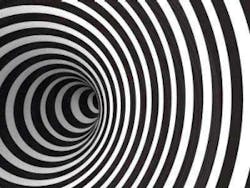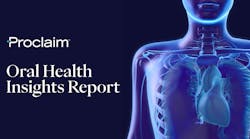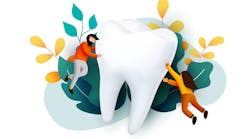Reflecting on a trip to Japan after the tsunami
Editor's Note: Associate editor Vicki Cheeseman recently had the chance to catch up with Larry Clark, director of clinical affairs for Pulpdent (pictured, left). Clark gave Cheeseman a first-hand account of his visit to Japan shortly after the earthquake and tsunami that ravaged the country on March 11.Vicki Cheeseman: How long were you Japan after the tsunami?Larry Clark: I went right after Cologne on April 23 through 30.Cheeseman: What did you see while you were there?Clark: Take it from someone who has been to Japan many times, seeing fear in the Japanese people will undo you. Normally they are a very stoic, very honorable people who respect others regardless. Unlike after disasters here, such as Katrina, there was no panic, no looting, no dishonoring. But to see fear … No one was taken north of Tokyo. 30% of the hotel occupancy rate is in Tokyo. I traveled to five cities, called on universities, dealerships, preeminent clinicians in implantology, and more, and everyone asked, “Why did you come?” All American manufacturers cancelled everything through August because they were afraid of radiation and more earthquakes.I will be frank: I always pray before I travel because I want people to know I care. I visited the Hakusui Company in Osaka. They have six branches, including one in Sendai. The branch there lost the physical structure, but no lives were lost. The people at Hakusui said, “We want to thank you and thank the God who sent you.” I was humbled by that.Now the bigger concern is radiation, and the Japanese people have a distrust for their government that they didn’t have before.Cheeseman: How did what you see affect you?Clark: It made me 10 times more compassionate toward the people. It made me work even harder. The Hakusui Company was trying to launch a product prior to the tsunami. They were putting all of their finances and efforts behind this project. The Japanese are an obedient people, but you could tell they didn’t have their usual spark. I tried to edify the people so they could see hope, not in the product, but in each other. It made me add more human attributes to my work there and back in the States. I even told some of my competitors here that we can work with the Japanese people.Cheeseman: What do you see as the people’s greatest need at this time?Clark: They need to know we care. There’s a general feeling that because they aren’t a Third World country, they don’t need as much help. Loyalties are amazing. Now is a good time to strengthen relationships, not hide in fear.Cheeseman: What effect has this disaster had on the dental industry specifically?Clark: The dental market that was destroyed in Japan is about 10% of their total business. However, the tsunami has affected the business of the entire country because of the fear, which is heightened by the media. The allowable radiation numbers were changed several times just while I was in Japan. The U.S. market has seen growth recently. It’s time to become an ally.Cheeseman: Have you seen the dental profession jump in to help Japan?Clark: No, just the opposite.Cheeseman: Do you believe a disaster like this can be used for good as time goes on?Clark: Absolutely. This is the time to show others what we’re made of, not the time to be courageous, but to help our brothers. This is a time to strengthen relationships, not be absent. After all, the dental profession is built on relationships. I am fortunate that the owners of Pulpdent have supported me in this.Cheeseman: Anything else you’d like to share with your dental colleagues?Clark: Don’t fall out of touch. Don’t sit back and watch the news and wait for better reports on radiation. The Japanese outwardly say they’re fine, but inside they really need and want help. I have never been treated so well as when I was in Japan. Professors even made time in their schedules for me. I felt like an honored guest.


